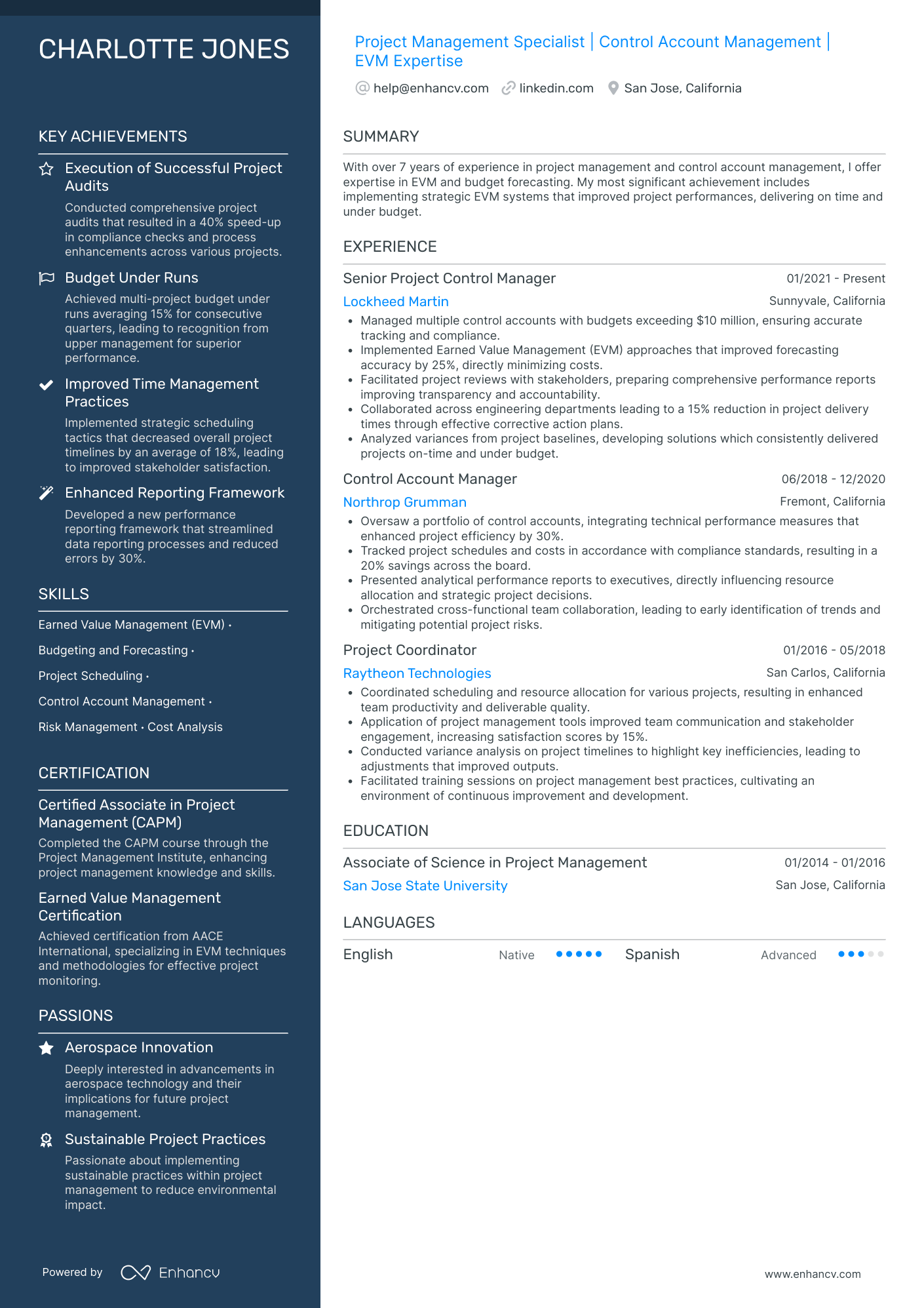Before a recruiter ever speaks to you, your resume does the talking. It’s more than just a list of roles and responsibilities—it’s your first handshake, your opening pitch, and a snapshot of the value you bring. A strong resume doesn’t just tell what you’ve done; it reflects who you are, both professionally and personally.
So, what sets a standout resume apart? It’s not just about formatting or keywords (though those matter too). It’s about presenting your experience with clarity and confidence—showing off your strengths with intention and personality.
From crisp structure and error-free writing to impact-driven accomplishments and a clear sense of your goals, the best resumes feel targeted to the position. They’re professional, polished, and unmistakably you.
In this post, we’ll explore the essential qualities that define a truly effective job application—the kind that catches a hiring manager’s eye and makes them want to know more.
Key takeaways
- Highlight traits like communication, adaptability, and problem-solving with clear, real-world examples.
- Structure your resume for clarity—use targeted sections, smart formatting, and a format that best fits your experience.
- Tailor your resume to each job by echoing keywords, matching achievements to the role, and quantifying results.
- Bring your personality into your resume through design, tone, and passion projects that reinforce your professional brand.
- Keep it polished, precise, and fueled by measurable outcomes—errors, fluff, or vague language can quickly undercut your credibility.
Is your resume good enough?
Drop your resume here or choose a file. PDF & DOCX only. Max 2MB file size.
Below, we break down the key characteristics that define a compelling, well-crafted resume.
Strong core traits that resonate with employers
A good resume isn’t simply a job history—it’s a curated narrative of your strengths. Employers want more than a list of responsibilities—they’re looking for traits that suggest you’ll succeed and thrive on their team.
Key characteristics to emphasize:
- Clear communication: Demonstrates your ability to collaborate, lead, and articulate ideas.
- Attention to detail: Reflects precision, accuracy, and a commitment to high standards.
- Adaptability: Shows you're comfortable with change and quick to learn.
- Problem-solving: Proves you can identify challenges and take initiative to resolve them.
- Positive attitude: Suggests you're a team player who fosters a productive work culture.
Back up these traits with examples—use specific quantified accomplishments or experiences to bring each quality to life.
Here’s a work experience description that does just that.
- •Directed weekly cross-functional team syncs with up to 10 stakeholders, improving project transparency and reducing miscommunication by 25%.
- •Maintained comprehensive project documentation and timelines, contributing to a 98% on-time delivery rate across 30+ campaigns.
- •Adapted to evolving client demands by launching agile workflows, boosting satisfaction ratings by 22% over six months.
- •Redesigned task management protocols, cutting backlog volume by 40% and increasing task completion rate by 18%.
- •Fostered a positive team environment through open feedback sessions and mentorship, raising internal engagement scores by 30%.
Structuring your resume for maximum impact
The layout and organization of your resume can make or break its effectiveness. A well-structured resume guides the reader through your qualifications with clarity and purpose.
Tips for smart format strategy:
- Tailor content to the role—relevant experience should always be prioritized.
- Create custom sections like "Certifications" or "Awards" to spotlight standout credentials.
The three resume formats to consider:
- Use a chronological format to emphasize career growth and experience progression.
- Use a functional format to emphasize transferable skills and core competencies over job titles or timelines.
- Use a combination format to emphasize both your most relevant skills and a solid work history, balancing qualifications with experience.
Clear headings, consistent formatting, and white space help maintain a refined look. A resume that’s easy to navigate is more likely to be read—and remembered.
Creating a laser-targeted resume
Tailoring your resume to each job is one of the most effective ways to stand out. It shows you're invested in the opportunity and understand what the employer is seeking.
Start by carefully reviewing the job description. Identify keywords, core competencies, and required experience.
Then:
- Match your achievements to those requirements.
- Use metrics to quantify success (e.g., "Boosted sales by 20% over six months").
- Adapt your summary to echo the company’s tone and values.
This approach helps your resume pass applicant tracking system (ATS) scans and makes it more appealing to human reviewers.
More on ATS
Applicant tracking systems are tools recruiters use to organize and scan resumes—but they’re not the resume gatekeepers they’re often made out to be. Despite common myths, you don’t need to completely rework your resume to “beat the system.”
Our ATS study confirms that formatting elements like fonts, colors, columns, or resume length don’t prevent your resume from being read or parsed correctly. In fact, the ATS doesn’t automatically reject resumes at all—it’s up to the recruiter to decide who moves forward.
The bottom line? A strong resume isn’t about “gaming” the ATS—it’s about presenting your experience clearly, structuring your content thoughtfully, and tailoring your message to the role. If you do that, the software won’t stand in your way.
Tactical organization that tells a story
Your resume should flow like a compelling narrative, with each section building on the last to showcase your qualifications.
Smart organization strategies:
- Use subheadings to cluster similar experiences (e.g., "Marketing Strategy," "Project Leadership").
- Lead with relevance, not just chronology—especially if your most applicable experience isn’t your most recent.
- Highlight transferable skills that connect your past roles to the position you’re targeting.
Think of your resume as a story about your career—and make sure it reads smoothly.
A clean, professional look
Visual polish matters. A professional design signals that you take your work seriously and understand the importance of first impressions.
Design elements to get right:
- Stick to modern, readable fonts (e.g., Arial, Calibri, Rubik).
- Use consistent font size and styling across headers, sub-headings, and body text.
- Limit color use—neutral tones with a single accent color work best.
- Format bullet points and spacing evenly throughout.
Don’t underestimate the power of white space in the form of resume margins—it helps make your content digestible and your layout approachable. Keep them from 0.5 to 1 inch all around. Keeping consistent spacing between lines also helps readability.
Here’s a good visual example of the points above.
Keep it concise and well-written
Hiring managers spend seconds scanning each resume. That means clarity and brevity are key.
Best practices for writing
- Use bullet points for responsibilities and achievements.
- Begin with action verbs (e.g., managed, developed, improved).
- Keep it to one page unless you have 10+ years of relevant experience.
- Avoid generic buzzwords—show, don’t just tell.
Proofread meticulously—a single typo can undermine your credibility.
Adding a personal brand touch
Your resume should reflect not just what you do, but who you are. Personal branding brings your individuality to the forefront.
- Include a concise resume summary that showcases your mission, strengths, and differentiators.
- Align your resume’s design and tone with the industry you’re in.
- Add personal projects or volunteer work that reflect your values.
- Mention accolades, testimonials, or leadership roles that support your reputation.
These subtle touches help recruiters remember you—and see you as more than just another applicant.
Your resume should tell your story, not just list your skills. Adding personality makes it memorable and helps employers see the human behind the qualifications.
J.T. O’Donnell, career coach and founder of Work It Daily
Practical, demonstrable experience
Concrete examples in your work experience section are your strongest evidence. Whether it’s a paid role, internship, or volunteer effort, real-world experience speaks volumes.
What to highlight:
- Projects that demonstrate your troubleshooting, innovation, or leadership.
- Internships or part-time jobs that built relevant skills.
- Technical proficiencies and how you've applied them in past roles.
Frame your experience in terms of outcomes: what was the challenge, what action did you take, and what was the result?
An ideal work experience entry
Marketing Intern
BrightPath Digital, San Diego, CA
June 2023 – August 2023
- Spearheaded a campaign audit project that identified underperforming email segments, leading to a 22% increase in open rates after segmentation strategy was revamped.
- Collaborated with the design team to prototype and A/B test landing pages using Figma and Unbounce. Optimized versions boosted conversion rates by 17%.
- Automated weekly performance reports using Google Sheets + Apps Script, reducing reporting time by 60% and improving team visibility on KPIs.
- Conducted competitive analysis that informed the launch of a new social media series, contributing to a 30% lift in engagement over 6 weeks.
- Gained hands-on experience with HubSpot, Google Analytics, and Canva, applying technical skills to real-world marketing challenges.
This example:
- Demonstrates innovation (audit and automation).
- Showcases relevant skill-building (through collaboration and tool use).
- Highlights technical tools with context (e.g., “HubSpot,” “Google Sheets + Apps Script”).
- Frames everything through results (percentages and impact).
Results-oriented and impact-driven language
To truly stand out, your resume should display the results of your work—not just the duties.
Ways to emphasize results:
- Quantify wherever possible (e.g., “Reduced costs by 15%,” “Trained 30+ team members”).
- Use powerful action verbs like "executed," "spearheaded," or "achieved."
- Mention promotions, recognitions, or responsibilities gained over time.
Performance-based content shows you don’t just do the job—you improve the organization.
Conversational and collaborative strengths
Soft skills matter more than ever—especially in team-driven environments. Showing strong conversational abilities on your resume can be a differentiator.
- Describe instances where you facilitated communication or conflict resolution.
- Share how you tailored your message to different audiences.
- Mention experiences that involved negotiation, storytelling, or active listening.
These skills suggest you’re a capable collaborator and communicator.
The top 10 universally applicable soft skills:
- Communication
- Teamwork
- Adaptability
- Problem-solving
- Emotional intelligence
- Time management
- Work ethic
- Creativity
- Leadership
- Attention to detail
Interest-driven and engaged
Your outside hobbies and interests can enhance your appeal—especially when they reinforce your professional capabilities. A great place for these would be on your cover letter.
What to consider including:
- Passion projects, side gigs, or community initiatives.
- Volunteer work that demonstrates leadership or organizational skills.
- Industry-related publications or speaking engagements.
- Experiences abroad or cross-cultural collaborations.
These details add depth and help recruiters see the well-rounded person behind the resume.
Error-free and consistent
Professionalism starts with precision. A mistake-free resume sends a clear message: you care.
How to ensure accuracy:
- Proofread multiple times to avoid typos.
- Double-check job titles and dates.
- Use a consistent format for headings, bullets, and margins.
- Avoid vague clichés and opt for concrete, measurable details.
Get a second pair of eyes on your resume when possible—a fresh perspective can catch errors you’ve overlooked.
We recommend using Enhancv’s free, fast Resume Grammar Checker—just upload your current document, and voilà!
Action-oriented and easy to respond to
- Close with a clear call-to-action (e.g., "Available for interview at your convenience").
- Link to your LinkedIn or online portfolio.
- Emphasize times you’ve taken initiative or stepped outside your formal role.
An actionable resume shows that you don’t wait for direction—you create it.
Conclusion
A great resume is a blend of logical flow, targeted content, and authentic personality. It’s concise yet rich with value, professional but unmistakably you.
By focusing on good traits to put on a resume—both personal and professional—you not only make a strong impression but also position yourself as the right fit for the role. Structure your resume thoughtfully, write with intention, and let your experience and character take center stage.
When you're ready to turn these insights into action, the Enhancv Resume Builder is here to help you craft a resume that truly stands out.
Make one that's truly you.




